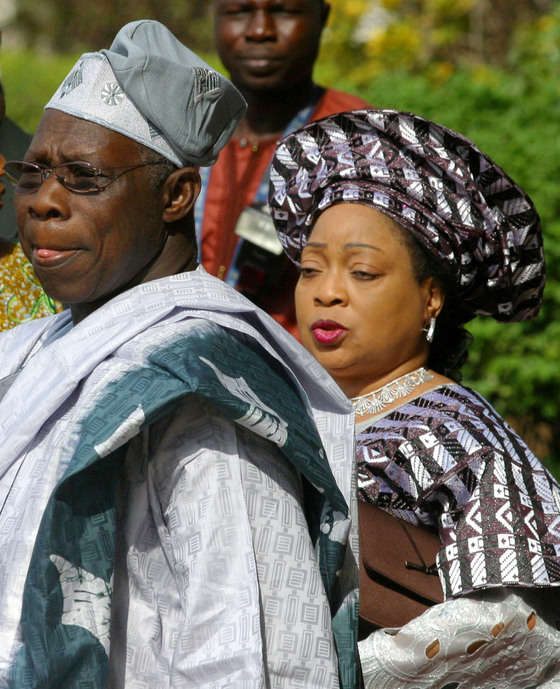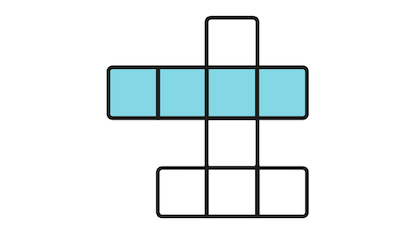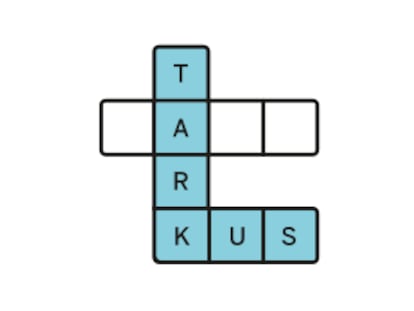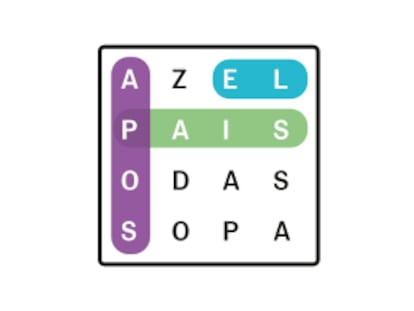How not to build a Nation: reflections on Nigeria @52

Autor: Chido Onumah
Part I
Except in the eyes of the extremely naive and incurable swindlers in the corridors of power, this country has already collapsed; only that the horror of its probable disintegration would be difficult to face”. This fascinating quote by journalist and activist, Godwin Onyeacholem, truly captures the Nigerian reality today. It’s been 52 years in the making.
On October 1, 2012, the Nigerian State under the supervision of President Goodluck Jonathan will perform the ritual of celebrating the country’s independence. It is noteworthy that the Jonathan administration has decided not to go for the pomp and circumstance associated with such celebrations which really would have added insult to our collective injury. But typical of our ruling elite, the planned sombre celebration is just another ruse, meant to pave way for a more elaborate, yet misguided, multi-billion naira celebration in 2014 to mark the centennial anniversary of the creation of Nigeria in 1914.
By every standard one decides to judge Nigeria, it has failed woefully as a nation. It is worth repeating because there are those afflicted with eternal delusions about, to use the weasel words of our politicians, “moving it forward”, the way it is presently constituted. It is mere wishful thinking. No amount of fancy talk or transformational balderdash can alter the fact that Nigeria is a full-blown “kleptocracy”, a state ruled by thieves, in the words of Prof. Niyi Osundare, on the way to imminent implosion. It has been said that Nigeria is a country of great potential and promise. It remains just that after 52 years: a country of great potential and promise.
Obasanjo should know. He, more than anyone else, facilitated the emergence of these scoundrels who have taken over our democratic space. Very few countries in the world can take the unrepressed pillage, outrageous abuse and unmitigated violation which the self-acclaimed giant of Africa has received and remain standing. David Cameron, British PM, has been quoted as saying, “If the amount of money stolen out of Nigeria in the last 30 years was stolen in the UK, the UK would not exist again.”
There are many figures in the public domain about how much our leaders have siphoned from the country since independence. From Nuhu Ribadu, former Chairman of the Economic and Financial Crimes Commission (EFCC), we learnt that the amount is “more than six times the total sum that went into rebuilding Europe in the aftermath of the Second World War via the famous European Recovery Programme, ERP programme or Marshall Plan”. The ERP programme was $13 billion. Interestingly, Germany, the choice location for medical care for our leaders, was one of the beneficiaries of the Marshall Plan.
Is it something as basic as education where it has been revealed that “Nigerians commit about N160 billion ($1billion) to the education of their children and wards in Ghanaian universities every year”. A recent newspaper report quotes the Chairman, Committee of Pro-Chancellors of Nigerian Universities, Dr. Wale Babalakin, as saying “the cost excludes huge amounts also spent on education of Nigerians in other countries such as the United States of America, the United Kingdom, Canada and Malaysia”. From Dr. Babalakin we also learnt that there are about 75,000 Nigerian students in Ghana, a country which, in the last decade, has been spending up to 35 percent of its annual budget (far beyond the UNESCO recommendation of a minimum of 26 percent) on education.
Let’s take a minor issue like polio eradication. Just recently, the Independent Monitoring Board (IMB) of the Global Polio Eradication Initiative (GPEI) issued a report which noted that “of six global sanctuaries for the poliovirus (which stand against the anticipated eradication), Nigeria’s Kano and Bornu States are the most problematic”. “Apart from Afghanistan, Nigeria’s northern region specifically constitutes major concern for global polio fighters, who now worry over the quality of local personnel and efforts. Although Kano, Bornu, and four other global (problematic) spots represent a relatively tiny proportion of the earth’s land surface area, the Monitoring Board had hinted that they ‘pose disproportionate risk to the likelihood of success for the entire globe”, the report noted.
Part II
The failure of Nigeria is essentially the failure of leadership. For some strange reason, it appears, we have been cursed with bad leaders right from the moment the colonialists departed 52 years ago. Unlike in places like Ghana and Tanzania, our post-independence rulers, rather than building a new nation and an egalitarian society, were more eager to replace the departing colonizers and subsequently initiate a more malicious brand of internal colonialism from the contraption that was handed over to them.
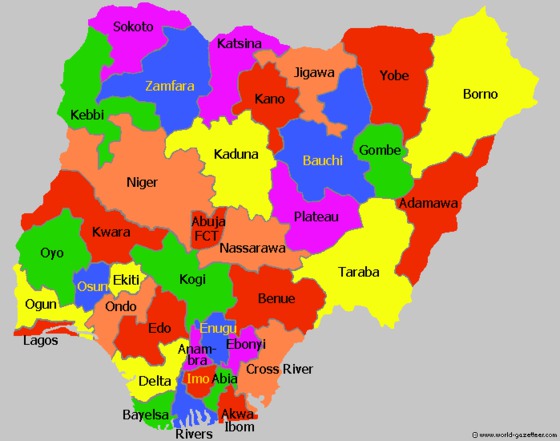
Over the years, the quality of leadership has degenerated, breeding various vices and entrenching unparalleled corruption which has now become a directive principle of state policy. There are those who accuse “ordinary” Nigerians of complicity in this rot. A typical example would be to point to the policeman or woman at a “road block” and conveniently say corruption is a Nigerian and, therefore, there is nothing we can do about it. I disagree. If the man on the street is corrupt, it is simply because the country’s leadership has not led by example.Where is the incentive for the policeman to be upright? Is it that his take-home pay can take him to and fro work in a month? That his children can get basic education or that his family can afford adequate medical care when they need it? Never mind that he is more likely to buy his own uniform and other paraphernalia of policing. That’s after he must have paid around N200,000 ($1250) to middlemen to join the police.
Meanwhile, his Inspector General is the proud owner of numerous housing estates and companies and would rank amongst the richest men in the country. Can a people really rise above the leadership they are confronted with? Leadership is everything! Since my encounter with Chinua Achebe’s book, The Trouble with Nigeria almost three decades ago, I have found it a constant companion. Achebe’s book goes to the heart of the Nigerian problem. But it is also a book that gives us hope that Nigeria is redeemable and we shouldn’t give up on the country.
At his pedagogic best, Achebe wrote: “The trouble with Nigeria is simply and squarely a failure of leadership. There is nothing basically wrong with the Nigerian character. There is nothing wrong with the Nigerian land or climate or water or air or anything else. The Nigerian problem is the unwillingness or inability of its leaders to rise to the responsibility, to the challenge of personal example which are the hallmarks of true leadership. Leaders are, in the language of psychologists, role models. People look up to them and copy their actions, behaviour and even mannerisms. Therefore if a leader lacks discipline the effect is apt to spread automatically down to his followers.”Nigerians are good followers. So, it is only proper that if our leaders have shown themselves to be lawless, Nigerians have learnt not to be law-abiding. Achebe talks about indiscipline on the part of our leaders. I would add impunity. Ours is a system built and sustained by impunity. Our leaders know they can do anything and get away with it. It is their despicable philosophy of “there is no going back,”; “no shaking”, “I dey kampe” that has brought us to where we are today.
As someone noted on one of the ubiquitous social media sites, we have failed repeatedly to win any form of medal in the Olympics of leadership. And the reason is evident: Our worse eleven have always emerged each time the opportunity rears its head. But there is no use lamenting our leadership deficit. There is no chance things will change until the Nigerian people rise and take charge of their destiny. A little over a year ago, a “transformation train” predictably destined for disaster took off from Aso Rock, the seat of power.
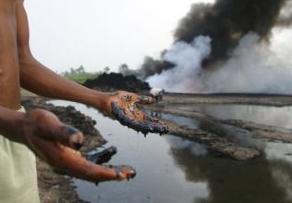
If Nigerians thought they had been taken for a ride by their leaders in the past, this is one bumpy ride -- no pun intended – in a “One Chance” transformation bus. Every action provokes an unsurprising feeling of deja vu. It has been a month since the First Lady went AWOL. There hasn’t been any coherent or intelligent explanation from the Presidency or Bayelsa State, her official workplace. It says a lot about a regime that rode to office on the back of a president that went AWOL for months. And for those who have been hoodwinked into believing that the First Lady is not a public official, let’s be reminded that she is also a permanent secretary in Bayelsa State.
For all we know, we may have a putative dictator on our hand. “The demonstration in Lagos, people were given bottled water that people in my village don't have access to, people were given expensive food that the ordinary people in Lagos cannot eat. So, even going to eat free alone attracts people. They go and hire the best musician to come and play and the best comedian to come and entertain; is that demonstration? Are you telling me that that is a demonstration from ordinary masses in Nigeria who want to communicate something to government? I am hardly intimidated by anybody who wants to push any issue he has. I believe that that protest in Lagos was manipulated by a class in Lagos and was not from the ordinary people.
”That was President Jonathan – a man who came to power two years ago on the strength of public demonstrations on his behalf -- responding recently to the nationwide protests in January against the removal of so-called oil subsidy. That insensate action was premised on the theory that there was an oil cabal that was ripping off the country through the oil subsidy scheme. As it turned out, this cabal so-called is an integral part of the current administration and the ruling People’s Democratic Party (PDP). Is it surprising, therefore, that nine months later, no one has been brought to justice for the billions the government freely paid out to its dubious partners in the private sector?
Part III
Having taken a critical look at Nigeria, I have also come to the conclusion that the problem of leadership which Achebe so brilliantly espoused in The Trouble with Nigeria is due in part to the structure of the country. 52 years after independence, we are still talking about the unity of Nigeria and whether we are one nation or not. It is this ambivalence about Nigeria – the structure and power relations -- and what it means to different people and interest groups that has created a fertile ground for the large-scale plundering currently going on across the length and breadth of the country.In essence, we do not have a nation and that is our greatest undoing.
Maybe we used to have a nation, not any more. A nation is made of people with shared interests and vision. Someone commenting about Nigeria not winning an Olympic medal at the recently concluded games in London had remarked morbidly: “There used to be a country called Nigeria. For some reasons no one loved her and after hanging on desperately for resuscitation gave up the ghost. Ghosts do not compete in Olympics”. At the risk of sounding repetitious, let me state that Nigeria can’t continue on this wobbly part for too long. Something has to give. Those who had predicted 2015 as the tipping point may not be too far off the mark considering the fraud being perpetrated in the name of governance. This rudderless government has created room for a political frenzy that portends only one thing: a serious threat to the survival of Nigeria. But the problem is not so much the fault of the present administration. It is really about the structure of Nigeria and who controls power at the centre because that person or group controls everything. Of all people, one of those who have played no small part in bringing Nigeria to this sorry state, Atiku Abubakar, perhaps in a momentary fit of catharsis, voiced complaints at a recent function in Abuja about the scandalously limitless powers wielded by anyone who occupies the presidential seat in Nigeria.
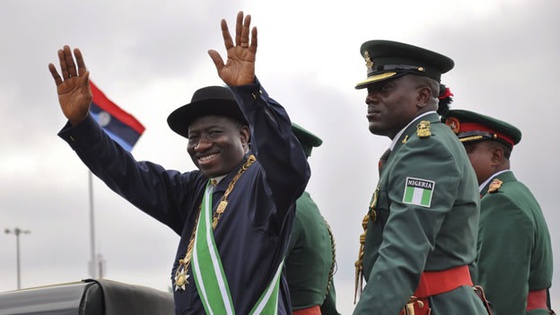
He referred specifically to President Jonathan as the most powerful president in the world (arriba, foto de EFE). With the scales now cleared from his eyes apparently, the former vice president says there is something wrong in a system that preserves this aberration. It is doubtful if he would have publicly expressed this same sentiment were he in Jonathan’s shoes. In spite of the messenger, this reaction is a measure of the growing irritation with power relations and the structure of governance in the country. Everybody is jockeying for the presidency. The South-south insists it deserves a second shot at the presidency in 2015. For the south-east, the presidency in 2015 is non-negotiable; and for the north, the region must produce the president in 2015. Add to this the declaration of independence and secession by various groups as well as the political and religious violence and banditry that are routine across the country and you have a recipe for disaster. But this is just a snapshot of the political power play for the soul of Nigeria as we inch towards 2015. And it is because of one thing: oil. Everyone wants their share and they would do anything to get it. Remove oil and the party will be over. Everyone will go home. The corruption and mind-boggling looting and primitive accumulation currently going on will cease. If our governors had to tax their citizens or generate fund internally to sustain their states, chances are that they won’t so easily and freely loot their state treasuries.
And, of course, if there isn’t excess money accruing from states to the federal government, the president, first lady, ministers, senators and reps, and sundry political office holders, will have very little to steal from. Oil and the “free” money accruing from it is the reason our leaders are so distant from the people.Unfortunately, the people themselves have taken a “siddon look” approach. We really don’t see the billions stolen everyday as our money because it is not coming directly from your pockets. We talk about corruption and the theft of our patrimony so distantly. “Let them continue to steal oil money, one day the oil go finish”, is the common refrain. Of course, our leaders are too glad to brazenly help themselves to the national cake.
The only time there is a problem is when the quarterly allocation does not come on time. Like bandits, the other concern is the sharing formula. You will never hear them talk about revenue generation.It is for this same reason that politics has become the only real job in Nigeria today. Nobody who comes near government wants to leave. A minister today, a senator tomorrow; a governor today, a senator or presidential candidate tomorrow. Once you steal enough money as a councillor, you aspire to be a local government chairman. Once you make it big as a chairman, you aspire to the state assembly or house of representatives. From there, you steal enough to make you emerge as a senator/minister with an eye on the governorship of your state. And when you steal enough to emerge as governor, you empty the state treasury to enable you run for president or better still stash it overseas.Of course, I can relate with people who are frustrated with President Jonathan and are looking for the next person to fix our problem. But as I noted earlier, our problem goes beyond President Jonathan, even though a bit of sincerity and some action on his part can help. When a car has a bad engine, I don’t think the preoccupation should be how to find a good driver.
What this points to is that the Nigerian society is overdue for a social and political revolution to redefine its future. Nothing in Nigeria today works according to any logic of a modern society. Virtually every sector of the Nigerian society -- National Assembly, tertiary education, judiciary, law enforcement, etc -- has collapsed. But the greater tragedy is we don’t even realize it.Perhaps, the problem is that we expect too much from professional politicians and the current crop of leaders so-called. We still have hope and expect them to give us good roads, health care, quality education, security, etc. They simply won’t do it. It is just not on their radar, even when they see and enjoy these amenities in other countries.
Part IV
As a nation, a couple of possibilities stare at us. One is the possibility of a military takeover. As much as we hate it, the prospect looms large. But it is one option, no matter how tempting, that Nigerians should not condone. Understandably, Nigerians are going through a lot and anything but the present order will do. But as Edwin Madunagu cautions, we should be wary of the emergence of a fascist movement (it could come to power “legally”, by “electoral means” or some other means) that deceptively looks like radical populism and whose historical mission is to block a genuine revolution of the people. It will ride on the “deteriorating socio-economic situation, widespread poverty, social divisions, insecurity (physical and economic) and mass discontent”.
Another possibility is that the country could descend into anarchy and witness an implosion. Neither option serves the interest of the mass of our people whose sweat and blood have largely sustained the country so far. If it is clear that we do not have a nation and that the options open to us are very few, how then do we begin the process of creating a nation -- a land of freedom, justice, and opportunities -- before it is too late. Short of a Sovereign National Conference (SNC), I do not see any other realistic option that can save Nigeria. Our so-called lawmakers have nothing to fear about the word SOVEREIGN. The conference will not rob them of their redundant, freeloading status as “distinguished senators” and “honourables.” The envisaged conference will be sovereign only to the extent that its resolutions will not be turned over to the legislature or the presidency or any other body for that matter for approval.
That way, the Nigerian people would have spoken about how they want to be governed. And those who hold the levers of power, to whom the responsibility of governance is entrusted, are not to act contrary to the people’s expectation. This, in my view, is the first step towards truly creating a Nigeria of everyone’s choice.There are those who have talked about political reform and a new constitution. These are mere cosmetic changes that do not get to the heart of our problem. As Professor Chinweizu has noted: “Many of the deadly problems plaguing Nigeria are maintained by the provisions of the constitution as well as the structures it has set up. Therefore, tackling many of Nigeria’s problems would require a comprehensive critique and gutting of the constitution in which they are rooted”. Essentially, political reform and a new constitution would emerge after there has been a national consensus on the structure of country and the power relations between different groups and interests.I believe in the territorial integrity of Nigeria and I think it would be foolhardy to tamper with it.
But I also believe in justice and equity which are sorely lacking in Nigeria today. We may not have been the same “tribe or nation” from the outset as some people have noted, but living in and travelling across Nigeria has shown me that the things that unite us are far greater than those that divide us; that after living together for almost 100 years and going through a bloody civil war, we can build a country of shared opportunities and vision, a perfect union, if we can isolate and defang the ethnic chauvinist, religious bigots and political swindlers in our midst.We can’t take the unity of the country for granted. That is why I believe the SNC still offers the best possible way out of the current imbroglio. I do not think many of those clamouring for the SNC have a problem with the geographical space called Nigeria. Their desire is that the relationship between those who inhabit it be negotiated and agreed upon.
It is important that we do this to stem the fear, tension, anger, frustration, and political and religious violence that stalk the land. While we clamour for the SNC, we must necessarily distinguish it from a conference of ethnic nationalities because, in the words of Edwin Madunagu, “Nigeria is more than the sum total of its ethnic nationalities”. We can distinguish two broad opponents of the SNC: those who want to main the status quo. They are the first to mouth the slogan, “the unity of the country is not negotiable”. For many of them like General Ibrahim Babangida whose misrule precipitated the current crisis, any discussion about SNC amounts to talking about the disintegration of Nigeria, never mind that the country is already on the brink.
Then, there is the other group that appears genuinely concerned about Nigeria, but worry about such inconsequential details as “how do we convoke the SNC?”Ideally, in a sovereign conference of the people, there should be no “no go areas”; nothing is sacrosanct! But I shall go ahead and propose a compromise position if only to reassure those who are genuinely concerned about Nigeria but worry that the SNC could lead to its disintegration. Before we go into the conference we can, without prejudice to the resolutions that will emerge, agree on three fundamental things: to maintain the territorial integrity of Nigeria; to ensure its secularity; and the guarantee of equal citizenship rights to every Nigerian wherever he or she may be in Nigeria.
Once we agree on these fundamentals, we should go in to the conference with an open mind to discuss everything else, including the vexed issues of revenue sharing/allocation and the political structure of the country. My take on the revenue problem is simple: states should keep 50% of the revenue accruing from their states from natural resources, taxes, etc. 30% should go to the national government and 20% to a special fund (jointly supervised by all the states) for emergency/crisis situation anywhere in the country.On the political structure, it seems we have a very tidy arrangement with the current geo-political structure. My only addition will be that for balance and equity, every geo-political zone should have seven states for a total of 42 states.
We should dissolve the 774 local governments and allow states to create their own councils as needed. I support the call by former governor of Lagos State, Asiwaju Bola Tinubu, for the scrapping of the Senate. The unicameral National Assembly should be made up five representatives from each state (42 states) for a total of 210 members, who will operate on a part-time basis. The states would have to decide how to elect their representatives.As for representation for the conference, here is a sample arrangement: two representatives from every ethnic nationality, notwithstanding its size and population; one representative from each senatorial district; two representatives from each recognised professional body: NMA, NBA, NLC, NUJ, TUC, NUT, etc.; five representatives from the National Youth Council of Nigeria (NYCN); five representatives from the National Association of Nigerian Students (NANS); five representatives from the National Council of Women Societies (NCWS); five representatives from civil society/NGOs; five representatives from Nigerians in Diaspora, etc. These organisations are to decide how to choose their representatives.
All that is required now is for these groups to start educating their members about the inevitability and benefits of the SNC and how they will be represented effectively. One last thing: instead of subjecting our children to learning every language in vogue (Chinese for now), the conference should explore the possibility of developing a national language to create a truly national identity.These suggestions are not inviolable. They are meant to spur a national conversation on the future of our country. Suffice to say that for those who genuinely want to save Nigeria, time is running out!
www.chidoonumah.com. conumah@hotmail.com
